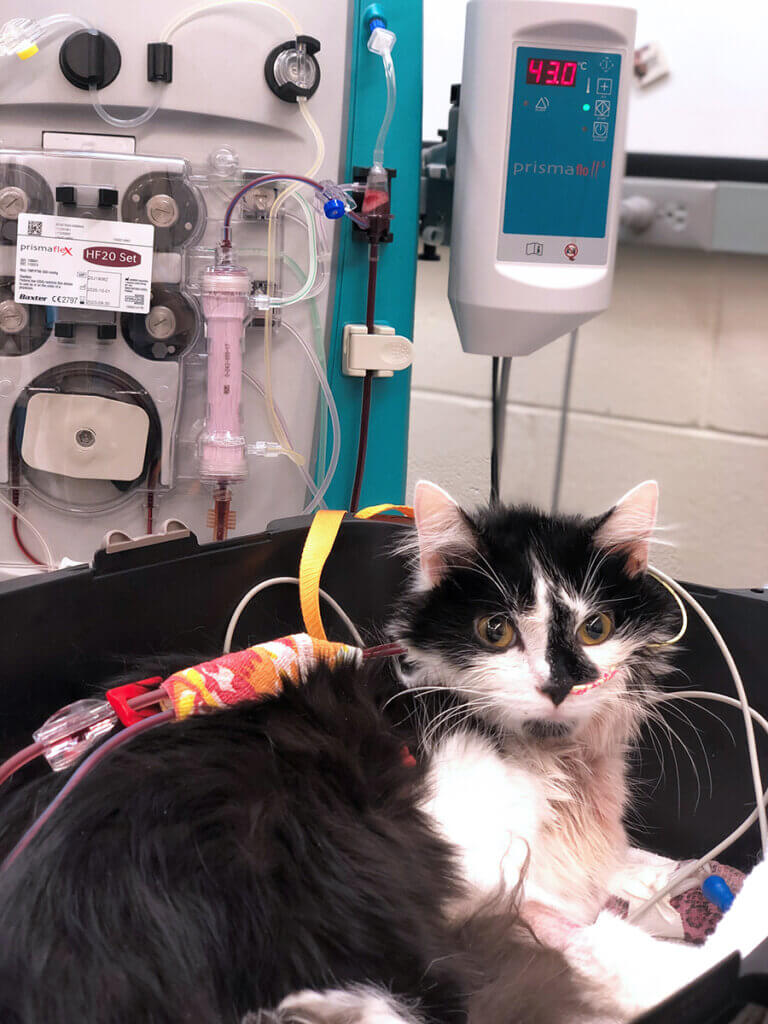
Easter weekend often marks the first signs of spring with fresh blooms brightening up the landscape and bouquets taking center stage. It’s also a good time to remember that not all plants are safe for our four legged friends, including the ever popular lily plant.

Lilies are a favorite in seasonal bouquets and outdoor flowerbeds, but the plants are highly toxic for cats. The entire plant in fact – leaves, pollen, stem, flowers, and even the water in the vase is dangerous. Ingesting any part can be fatal for cats. Although it is not known what the exact toxin is, lily exposure leads to severe kidney failure in our furry feline friends, as was the case for Juniper the cat – a patient of the Purdue University Veterinary Hospital.
Juniper presented to the Small Animal Hospital just two days shy of his one year birthday. Referred to the hospital by his primary veterinarian, Juniper was in severe kidney failure after his owner had gotten a floral bouquet containing lilies a few days prior. He is currently undergoing hemodialysis to support his recovery. Although he has much improved, Juniper’s prognosis remains guarded. Lilies can cause severe kidney damage and not all cats recover despite intensive management, including hemodialysis. Some cats can only be saved with a renal transplant. Juniper’s care team in the hospital’s Hemodialysis Service have their fingers crossed that Juniper continues to do well and recovers from this, like Kit, a kitty the service treated a year ago.
What to do if your cat has ingested lilies?
Please contact your local veterinarian or the Purdue University Veterinary Hospital immediately at 765-494-1107. Initially, it is common for the cat to appear healthy and even blood work to be unremarkable. In many cases, severe kidney injury can be prevented by intravenous fluid therapy, so, despite all looking good, your veterinarian may recommend keeping your feline friend in the hospital for a few days as this will help to avoid hemodialysis.
